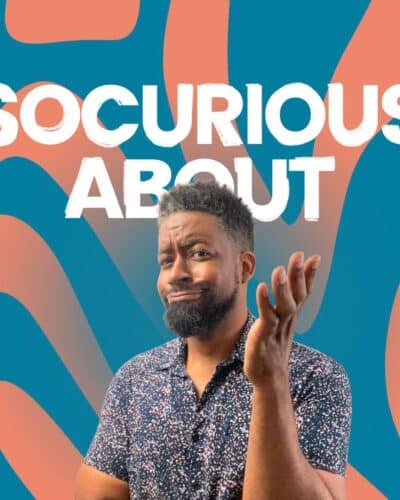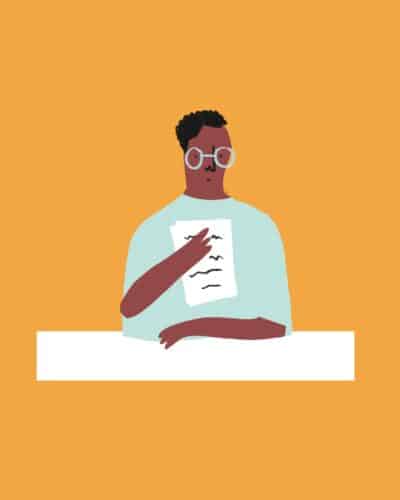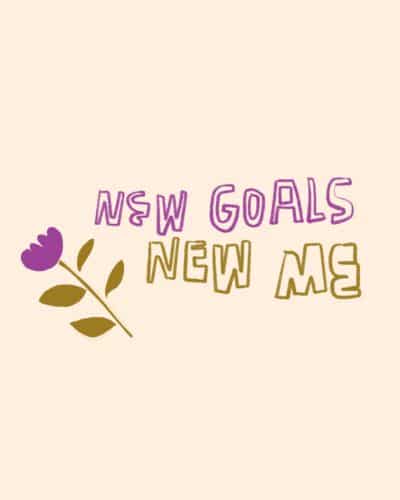This is the episode where you get to ask me anything about being a creative director. I do a deep dive into what creative directors do, how to break into the industry, and my thoughts on AI and its effect on the creator economy.
Download the 10 affirmations that changed my life.
Follow Justin on Instagram and tell me what you think of the episode.
Preorder my new guided journal The Reset Workbook.
Order Joy Bombs affirmations cards.
Here’s the full transcript:
Ok you’re creative.
And you can direct stuff?
Yooo you should definitely be a creative director.
This is Justin and you’re listening to SoCurious About, a weekly podcast about creativity, marketing and joyful living.
I got some questions on my Instagram and realized that yall are socurious about my creative career, so in today’s episode I’m going to answer all your questions on being a creative director.
What does a creative director do?
Primarily a creative director is responsible for developing the creative vision for a project based on client goals and budget. This usually includes pitching concepts and working with the creative team to execute that vision.
It’s a lot more left brain thinking than I think most people imagine.
It’s managing budgets, building timelines, sourcing freelancers, and managing cross-departmental relationships.
Then there’s reviewing the work of your team, investing in their growth, and creating a great place for them to work.
I think the most important thing to note, is that when I’m leading a creative project, I’m usually not actually making creative work.
My team is doing that. And my job as an effective leader is to help them refine their ideas into something that is more succinct. More conceptually sound. Or easier to sell to the client.
I’m basically reviewing everything through that framework in the hopes that i can sell it internally to the primary decision makers and then externally to the decision makers on the client side.
What skills do you need to be a good creative director?
Being a creative director is definitely so multifaceted.
There are differing needs based on the internal and external function of the job.
So externally, you’re working with clients in a service based role. So you need to be a good public speaker so you can clearly present concepts to clients in a way that convinces them to buy.
You have to be quick on your feet because you will get any number of questions from a variety of different directions.
And you need to be confident and willing to push back when necessary. This is a balancing act because while you should be an expert in your field, your client should also be an expert in their specific business or industry.
Internally, you have to have core creative skills necessary for the company you work for.
This can vary, but in working for digital marketing agencies, I need a deep understanding of copywriting, graphic design, short form and long form content creation, digital advertising best practices primarily for google and social ads, UI and UX design primarily for landing page creation.
And then you need the interpersonal skills to make the relationships work at your company. For example, you have your core creative team. This would be your immediate bosses you’re trying to impress. And then you have the team members you’re managing. You’re trying to help them make the best work possible and set them up for success in getting the career growth that they want to be successful.
But then you also are working with other teams and department heads. In my experience, I worked closely with incredible account executives, project managers, strategists, paid media managers, and digital experience designers. And there’s so much give and take because every team is integral to the success of the project. So you’re negotiating timelines. You’re taking notes from lots of different people. And while doing all of that you’re trying to make work that genuinely connects with your target audience.
It’s actually challenging, but its also really fulfilling when you can figure out how to make something that actually works for allll of the different people and their varying opinions.
What was your path to becoming a creative director?
So we’ll start with the professional path and then we’ll talk through the side hustles.
I started as a web designer at a small agency. It was teeny tiny (like 5 employees), so I was doing some account managment, as well as building sites and doing graphic design.
Then I worked at a large agency as a graphic designer. This was a more traditional regional agency with about 200 employees, so I had the opportunity to work on a few TV commercials, branding projects, and lots of print work.
I took a sharp left and went to get my masters in arts administration because I wanted to open my own art gallery…that did not work out.. So I worked at a museum and then at an arts high school for 3 years as a communications manager.
The value of going back to school was that I learned a lot about Marketing and Business and it stoked my desire to start my own company.
So I launched a design studio and did branding, web design, and marketing services. I ran that business for 3 years and this was where I learned how to manage freelancers and interns. This was pivotal in me gaining confidence as a leader and prepared me to officially use the title Creative Director.
My next job was as a creative director for a digital agency that primarily focused on online advertising and social media management. About 20 employees. And this was my opportunity to really learn how to be an empathetic leader. At this company I cultivated the skill of genuinely investing in my team and their growth and learned how to navigate just about any creative problem that pops up.
Then I moved to Austin and worked for a digital marketing agency that had been recently acquired by a larger consulting firm. There were hundreds of employees globally, but probably 100 people in our office. This was the agency that taught me how to do design thinking workshops and just vastly increased my capacity for meaningful presentation design and incredible storytelling.
Worth noting, along the way I had a variety of side hustles that helped me to gain other professional experience.
I almost always was doing some sort of web and graphic design freelancing for almost all of my career.
I also created a local publication for millennials about the city of New Orleans. I ran that for 6 years and published 4 print issues and a few books.
I cofounded a conference for creators and was responsible for curating the experience and speakers and doing the digital marketing to promote the event.
And I launched a weekly newsletter that I still run today. It’s called The Weekly Reset and its a weekly pep talk and thoughtful recommendations that you should subscribe to.
I really think my path was faster because I used side hustles as my shortcut to learning all of the vary skills necessary to succeed.
What’s your favorite part of being a creative director?
I love presenting. Like its nerve racking, but I genuinely just love the process of taking a loose idea and turning it into something meaningful that connects with the hearts and minds of people.
That’s really what advertising is. Creative storytelling with a specific goal in mind.
I also love mentoring. There is something really phenomenal about being able to invest time and energy into someone else and their growth and to watch them ultimately flourish. That’s one of the most meaningful opportunities of leading creative projects.
The other big thing that I love is you have the opportunity to makee things that exist in the world and affect a lot of different people. Depending on the clients you have you can have millions of people see something that you made and that is such a wonderful feeling. To be a small part in changing the culture at large. Even if its making a random banner ad promoting a business. That has a certain level of impact.
What your least favorite part?
Working at an ad agency is so hectic. You’re usually managing 3-4 clients at any given moment, so your focus is always split between a lot of different priorities.
While I love a little chaos, I also like the opportunity to deeply reflect and have time to process and think.
I feel like the best decisions are made when you take a beat and actually rest.
Its a fast-paced environment so there’s not always the opportunity to slow down and do that.
The other biggest challenge is that you’re not invested in the full inner workings of the company you’re supporting, so sometimes you will work on a campaign, launch it, and never even learn if it had significant business impact for the company.
This is frustrating because when you work long hours to achieve the goal, sometimes you really want to continue to work on it to see how you can adapt the idea or make it that much more impactful with tiny tweaks.
What is it like being a black man in the agency world?
It’s interesting to be honest.. working in the agency world as a black, gay man. It has it’s ups and it has its downs.
Generally speaking, most of the large agencies I worked for had very few people black people working in the creative department, which can be challenging. For me, the biggest challenges often showed up in the references that other team members share. Someone on the team will make a joke about something and I just won’t get it because I havent seen that movie or watched that show.
And often times it would feel like I was the only person that didn’t get the reference which could be super awkward.
This would also go the other way. Because my frame of reference is so different from the team, I will present an idea and either it will be loved because its soooo out there OR it will just be blank stares and crickets.
I think though the thing that set me up for success was in learning art history and the history of graphic design. By being able to really sit with ideas from the greatest of all time, I have a wealth of knowledge to provide a creative rationale for the decisions that I make.
That helps a lot.
Outside of that, I made it my personal mission to connect with the other people of color at the agency and made sure to join the affinity groups and attend the meetings. Joining the black ERG, the LGBT affinity group at bigger companies I worked at created a safe space to chat through issues and get a second opinion on the subtle and not-so-subtle microagressions. Because even the most liberal minded employers occasionally will say and do things that make you feel uncomfortable.
And every once in a while you will deal with clients that don’t want to work with you because they don’t expect someone that looks like you to be in this position.
For me, that pushback was fuel. I focused a lot of my attention on becoming smarter, faster, and more kind. I also made sure that everything I presented was well-researched and thoughtful. It’s hard because we live in an imperfect world. But in order to make it, especially as a person of color you have to be great to even make it in the door.
Which leads us to the next question.
How do I get my feet in the door?
The best advice I have for someone that wants to become a creative director is to become an expert at either art direction or copywriting. And once you’ve mastered one, you need to refine your taste in the other so you can give great feedback to your team.
Coming from a design background, I focused a lot of attention on learning how to tell better stories and specifically how to write incredible headlines. This was a meaningful way to differentiate myself because I could take ideas from my team members and build on them. This inspires confidence in your capacity to review your team’s work
Outside of mastering art direction and copywriting, you also have to cultivate other skills. Mentor junior employees, take continuing education classes that are focused on business and marketing, learn to confidently present.
I think if you can become good at sales it will help you with every aspect of your creative career because at its heart, everything is just sales. Presenting is selling ideas. Getting a job is selling your expertise to the company. Asking for a promotion is selling your value to the company.
These skills are really the most necessary thing to growing into the roll of a Creative Director.
What are your thoughts on AI and how it will affect the creative industries?
AI is both terrifying and so interesting to me.
I think the problem with AI is that it seems like the richest of the rich are on a quest to eliminate all of the middle class jobs.
This is probably the biggest challenge with capitalism as a whole. We see people as consumers and forget that they are actually human.
Like, we have all this technology to make it faster to edit video, to make art, to make music, but that’s the actual joy of being human. Like humans should be able to enjoy the creative process.
The machines should be unloading the dishwasher and folding the clothes that are sitting in the corner of my room.
Now what I love about AI is that we have the opportunity for solo creators to have a thought partner. ChatGPT could be used to write content. Sure. But it’s so much better when you as a creative person are in conversation with it.
It has helped me to get out of creative blocks. It’s supported me in coming up with different ways to say things when I get stuck. It’s even helped me to analyze the things that I create and gives me a framework for describing better what I produce and who i am.
Regardless of where you land, the technology is here. And things will change. It’s scary but in every great technological advance we lose jobs and people have to evolve or be replaced.
It’s interesting though because you look at so much of the creator economy today and I can’t help but wonder, what will this look like 10 years from now. Like what will it look like 5 years from now.
I literally have no idea how to even answer that question.
Okay we did it. I answered your questions about being a creative director.
I’m thankful yet again to have the opportunity to spend a little time with you.
And I’m looking forward to chatting soon.
You’re pretty cool people.
If you’re feeling fly, I would love for you to leave a five star review on whatever podcast platform you’re using. If it’s Spotify, it’s one simple click that could help get this podcast in front of new people.
If you’re feeling super fly, you can follow me on instagram at justinmadethat.
That’s all I got. Let’s chat next week.



